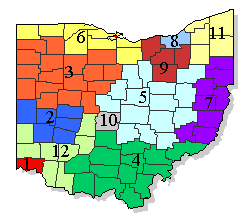 From the 2008 Lindsay Lohan stories to the 2022 news reports about Paul Pelosi’s DUI conviction, the past 14 years have shown a dramatic increase in the use of ignition interlock devices (IIDs) for individuals charged with DUI (called ‘OVI’ in Ohio). A recent report by Coherent Market Insights indicates IIDs in North America will be a $68.5 million industry by 2027. In Ohio, the increased use of IIDs is due, in part, to Annie’s Law. IIDs may be an effective method of preventing OVI, but they do have drawbacks.
From the 2008 Lindsay Lohan stories to the 2022 news reports about Paul Pelosi’s DUI conviction, the past 14 years have shown a dramatic increase in the use of ignition interlock devices (IIDs) for individuals charged with DUI (called ‘OVI’ in Ohio). A recent report by Coherent Market Insights indicates IIDs in North America will be a $68.5 million industry by 2027. In Ohio, the increased use of IIDs is due, in part, to Annie’s Law. IIDs may be an effective method of preventing OVI, but they do have drawbacks.
Articles Posted in DUI/OVI laws and cases
Effects of Prior Test Refusals and Convictions on Ohio DUI/OVI Sentences
 Suppose a person is charged with DUI (called ‘OVI’ in Ohio) and that person previously refused an alcohol/drug test when arrested for OVI. Can that person’s sentence be enhanced for the current OVI based on the prior refusal? This question was recently addressed by the Wisconsin Supreme Court. In Ohio, this question is addressed in the Ohio OVI statutes. The Ohio OVI statutes are nuanced and do provide consequences for prior convictions and test refusals.
Suppose a person is charged with DUI (called ‘OVI’ in Ohio) and that person previously refused an alcohol/drug test when arrested for OVI. Can that person’s sentence be enhanced for the current OVI based on the prior refusal? This question was recently addressed by the Wisconsin Supreme Court. In Ohio, this question is addressed in the Ohio OVI statutes. The Ohio OVI statutes are nuanced and do provide consequences for prior convictions and test refusals.
Pedal Pubs and DUI/OVI on Non-Motorized Vehicles in Ohio
 Can you get a DUI (called ‘OVI’ in Ohio) on a vehicle which is not motorized? Like many legal questions, the answer is, ‘maybe’. A person involved in a recent ‘pedal pub’ incident found out the hard way the answer is ‘yes’ when operating a mobile bar in Georgia. But what about Ohio?
Can you get a DUI (called ‘OVI’ in Ohio) on a vehicle which is not motorized? Like many legal questions, the answer is, ‘maybe’. A person involved in a recent ‘pedal pub’ incident found out the hard way the answer is ‘yes’ when operating a mobile bar in Georgia. But what about Ohio?
DUI / OVI and Child Endangering in Ohio
 The recent arrest of former U.S. Women’s Soccer goalie Hope Solo resulted in significant media coverage. As articles like this one from CNN reported, Solo was charged in North Carolina with DWI and Child Abuse. What North Carolina calls ‘DWI’, Ohio calls ‘OVI’. What North Carolina calls ‘Child Abuse’, Ohio calls ‘Child Endangering’. Solo’s reported incident illustrates what happens when a driver is accused of being under the influence with children in the vehicle.
The recent arrest of former U.S. Women’s Soccer goalie Hope Solo resulted in significant media coverage. As articles like this one from CNN reported, Solo was charged in North Carolina with DWI and Child Abuse. What North Carolina calls ‘DWI’, Ohio calls ‘OVI’. What North Carolina calls ‘Child Abuse’, Ohio calls ‘Child Endangering’. Solo’s reported incident illustrates what happens when a driver is accused of being under the influence with children in the vehicle.
Continue Reading
Prosecuting Drivers of Automated Vehicles for DUI/OVI in Ohio
 Utah is apparently leading the way in traffic safety measures. This blog’s last article discussed Utah’s lowering of the ‘legal limit’ for blood alcohol concentration to .05. Now, Utah is working on a law which makes it illegal for an individual to be under the influence when using a vehicle’s driver assistance system. Under the new law, a driver cannot escape criminal liability for DUI (called ‘OVI’ in Ohio) by claiming they were not ‘driving’ the vehicle. The same is true in Ohio, without a new law.
Utah is apparently leading the way in traffic safety measures. This blog’s last article discussed Utah’s lowering of the ‘legal limit’ for blood alcohol concentration to .05. Now, Utah is working on a law which makes it illegal for an individual to be under the influence when using a vehicle’s driver assistance system. Under the new law, a driver cannot escape criminal liability for DUI (called ‘OVI’ in Ohio) by claiming they were not ‘driving’ the vehicle. The same is true in Ohio, without a new law.
What Happens When an Out-of-State Driver Gets a DUI/OVI in Ohio?
 When I vacation in other states, people ask me where I’m from. When I say “Columbus”, I usually have to add “Ohio”. I have learned that very few people travel to Ohio for vacation. Some people do travel here for business and personal trips. Whether here for a business trip, a personal trip, or an improbable vacation, if a driver with a license issued by another state gets a DUI/OVI in Ohio, that person faces consequences in Ohio and may face consequences in the state which issued the driver’s license.
When I vacation in other states, people ask me where I’m from. When I say “Columbus”, I usually have to add “Ohio”. I have learned that very few people travel to Ohio for vacation. Some people do travel here for business and personal trips. Whether here for a business trip, a personal trip, or an improbable vacation, if a driver with a license issued by another state gets a DUI/OVI in Ohio, that person faces consequences in Ohio and may face consequences in the state which issued the driver’s license.
Autobahn Top-Speed Test: Reckless Driving?
 A driver may face up to two years in a German prison for driving at 257 mph on the Autobahn. Authorities allege he was driving carelessly at an inappropriate speed. In Ohio, we would call it reckless operation of a vehicle. But what constitutes reckless operation? Allegations of driving recklessly are sometimes made in the context of a DUI case (called ‘OVI’ in Ohio), and the issue of recklessness also arises in serious vehicular crimes, like Vehicular Homicide and Vehicular Assault. As our firm regularly deals with the element of recklessness, this speed-testing story piqued my interest. Continue Reading
A driver may face up to two years in a German prison for driving at 257 mph on the Autobahn. Authorities allege he was driving carelessly at an inappropriate speed. In Ohio, we would call it reckless operation of a vehicle. But what constitutes reckless operation? Allegations of driving recklessly are sometimes made in the context of a DUI case (called ‘OVI’ in Ohio), and the issue of recklessness also arises in serious vehicular crimes, like Vehicular Homicide and Vehicular Assault. As our firm regularly deals with the element of recklessness, this speed-testing story piqued my interest. Continue Reading
Does Ohio’s Drugged Driving ‘Per Se’ Law Unconstitutionally Punish Status?
 When a person uses marijuana, the high from the THC last for about two hours, but the THC metabolites are detectable in the person’s urine for up to five weeks. Suppose a person smokes marijuana and a week later is pulled over and investigated for DUI (called ‘OVI’ in Ohio). If that person submits a urine sample and the urine test shows a prohibited level of marijuana metabolite, that person will be prosecuted for OVI because it is ‘per se’ illegal to operate a vehicle with a prohibited concentration of marijuana metabolites, even if the person’s driving is not impaired. Challenges to this ‘per se’ OVI law have been unsuccessful in Ohio courts. A recent case from the Ohio Supreme Court suggests the Court may be inclined to evaluate the constitutionality of the OVI ‘per se’ law for drugs.
When a person uses marijuana, the high from the THC last for about two hours, but the THC metabolites are detectable in the person’s urine for up to five weeks. Suppose a person smokes marijuana and a week later is pulled over and investigated for DUI (called ‘OVI’ in Ohio). If that person submits a urine sample and the urine test shows a prohibited level of marijuana metabolite, that person will be prosecuted for OVI because it is ‘per se’ illegal to operate a vehicle with a prohibited concentration of marijuana metabolites, even if the person’s driving is not impaired. Challenges to this ‘per se’ OVI law have been unsuccessful in Ohio courts. A recent case from the Ohio Supreme Court suggests the Court may be inclined to evaluate the constitutionality of the OVI ‘per se’ law for drugs.
A Tale of Two Cities: Destroyed Evidence in Ohio DUI / OVI Cases
 In a DUI case (called ‘OVI’ in Ohio), what happens when evidence is destroyed because a prosecutor does not timely respond to a specific request for that evidence? It depends on the jurisdiction. In ten of Ohio’s 12 appellate districts, the case would likely be dismissed. In the other two Ohio appellate districts, there would likely be no sanction. Two appellate cases from two Ohio cities illustrate the outcome depends, in large part, on where the case is heard.
In a DUI case (called ‘OVI’ in Ohio), what happens when evidence is destroyed because a prosecutor does not timely respond to a specific request for that evidence? It depends on the jurisdiction. In ten of Ohio’s 12 appellate districts, the case would likely be dismissed. In the other two Ohio appellate districts, there would likely be no sanction. Two appellate cases from two Ohio cities illustrate the outcome depends, in large part, on where the case is heard.
Ohio Case Illustrates Expert Nature of Accident Reconstruction Testimony
 Cases of Vehicular Homicide and Vehicular Assault often involve testimony regarding accident investigation and accident reconstruction. Accident investigation is the collection of evidence at the crash site, and this activity is typically not considered the domain of expert testimony. Accident reconstruction is the use of scientific methods to determine the cause of the accident, so testimony on this subject is ordinarily considered expert testimony. A recent Ohio case illustrates the expert nature of accident reconstruction testimony.
Cases of Vehicular Homicide and Vehicular Assault often involve testimony regarding accident investigation and accident reconstruction. Accident investigation is the collection of evidence at the crash site, and this activity is typically not considered the domain of expert testimony. Accident reconstruction is the use of scientific methods to determine the cause of the accident, so testimony on this subject is ordinarily considered expert testimony. A recent Ohio case illustrates the expert nature of accident reconstruction testimony.
 Columbus OVI/DUI Attorney Blog
Columbus OVI/DUI Attorney Blog

